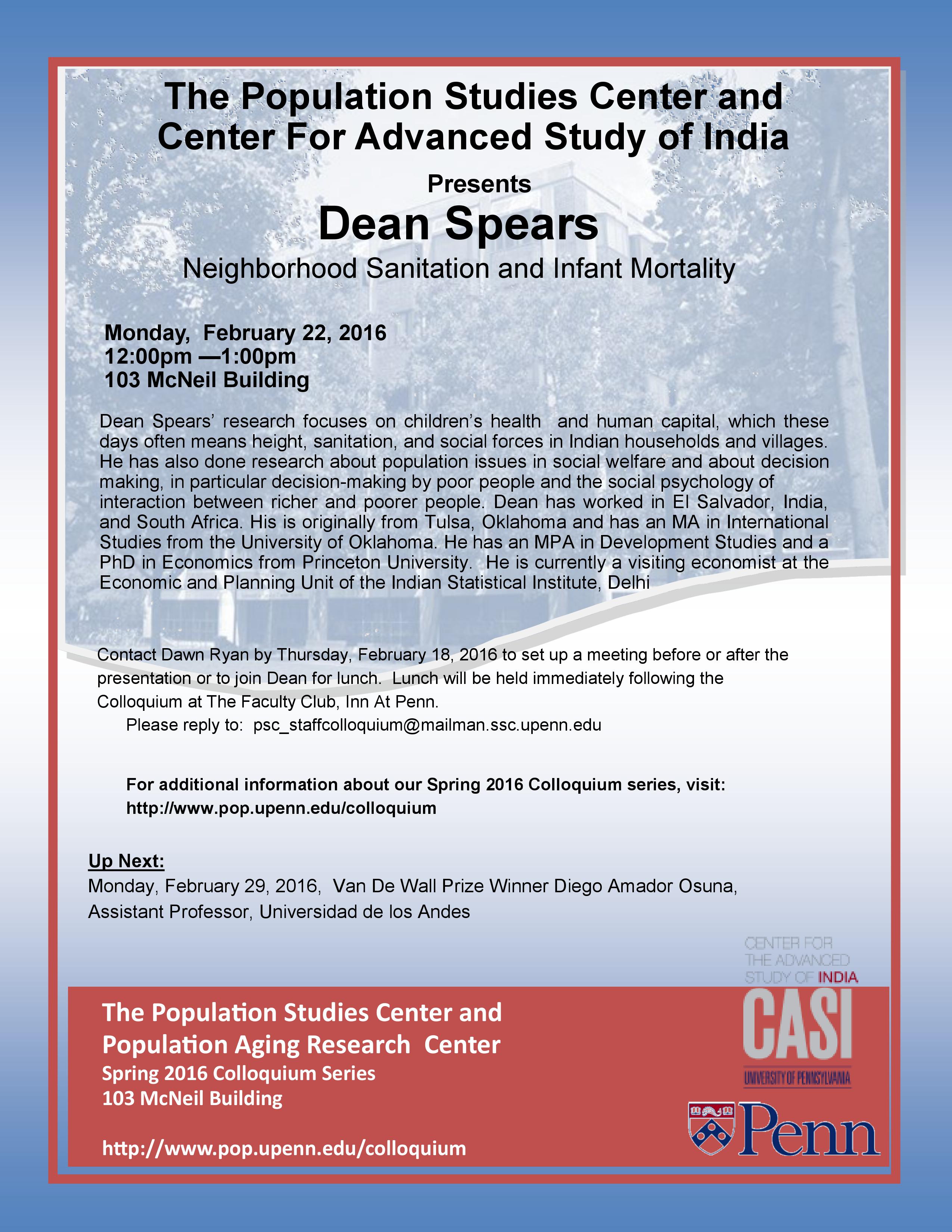Intergenerational Effects of Women's Status: Evidence from Joint Indian Households
About the Speaker:
Diane Coffey is a demographer who studies social influences on health in India, specifically the intergenerational transmission of poor population health resulting from India's exceptionally poor maternal nutrition. Her research traces links among gender, stratification, and poor birth, childhood, and adult health outcomes. She has also studied the causes and consequences of poor sanitation in India. Diane is currently a Visiting Researcher at the Indian Statistical Institute in Delhi, and a Visiting Fellow at Princeton University.






